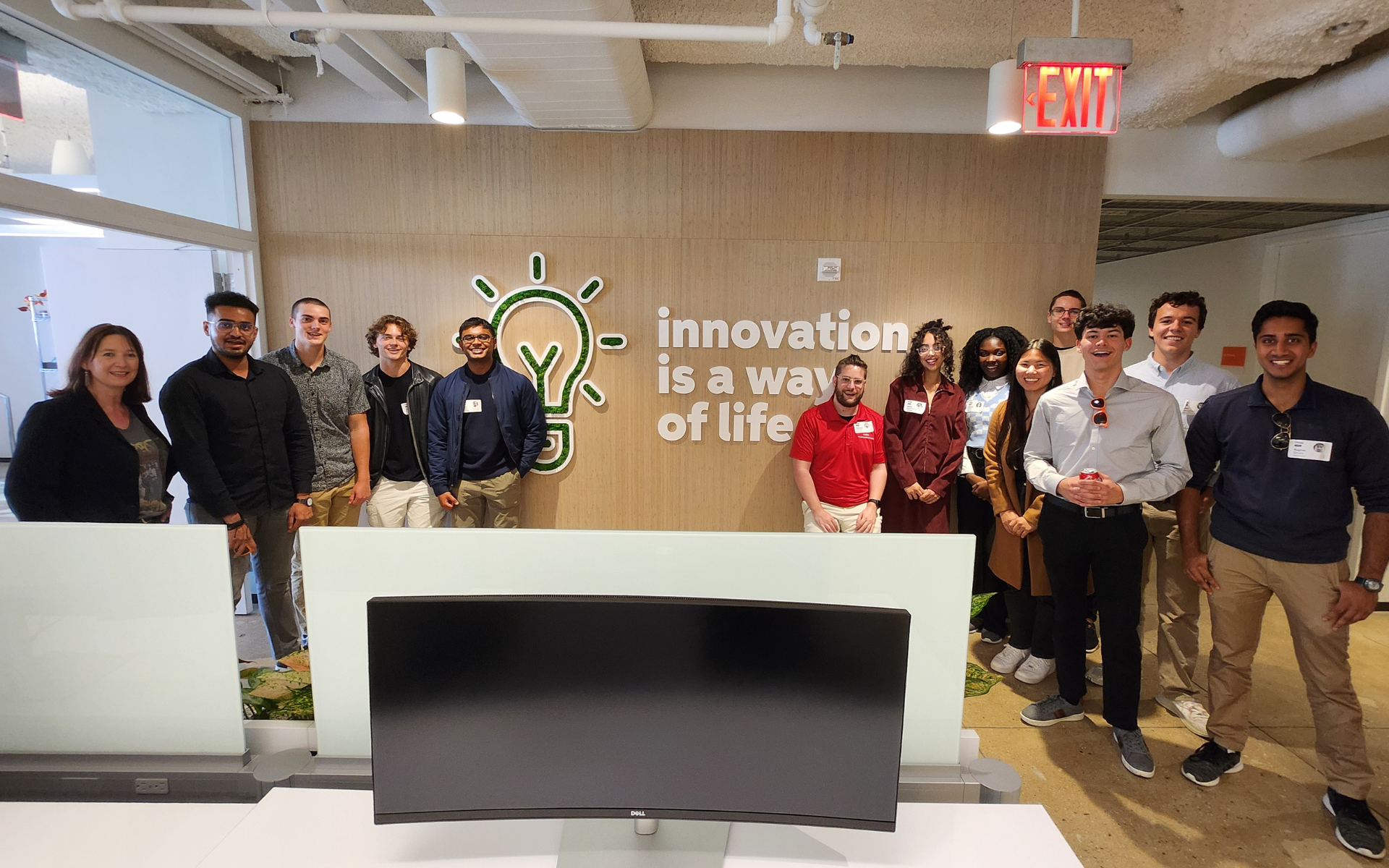Jam-Packed With Opportunities
Sarah Grace Stone answers to many names, including daughter, sister, student, agricultural advocate and small business owner, just to name a few. The Robeson county native is a senior majoring in agricultural business management and minoring in agricultural entrepreneurship, animal science and economics. She’s set to graduate this spring.
Growing up on an eighth-generation family farm in Rowland, North Carolina, Stone developed a passion for agriculture and an appreciation for the man on the tractor, who was usually her father or grandfather. But she quickly realized that the driver of the tractor was just that: a man. Stone says that as she grew up, she found finding her place on the farm difficult as a girl.
“It wasn’t out of malicious intent that I wasn’t the first to be called on when work needed to be done, it was more from a place of protecting me,” Stone says, “I didn’t let the fact that I was a woman push me away from the farm, I just had to find where I fit.”
Stone found a place where she could not only excel, but expand. “I took to produce, the more niche side of our operation,” she says. Stone remembers the many hours working with her grandmother at the strawberry patch and roadside stand, named Bo’s Berry Patch after her father, who started the venture in 2001. She recalls the afternoon that a customer came in asking if they sold anything other than fresh strawberries. Stone watched as her grandma handed them a notecard with her famous strawberry jam recipe, and she had a realization.

Stone remembers, “When my grandma gave the customer that notecard, I feel like that set the trajectory of my role in agriculture, and on our family farm specifically.” Realizing that there was an opportunity in the market, Stone started planning a way to fill the need.
“I could make jam,” Stone says, “I could get grandma to teach me, and I could make extra money for school. I was saving up to have some spending money in college and realized that there was a gap in the marketplace.”
Stone started making strawberry jam in her family’s kitchen using berries straight off the farm and selling her product at the roadside stand. The jam did so well that customers started asking if they sold any other flavors. Stone bought some blueberries and went to work on a new recipe similar to her strawberry jam one. In no time, she had a new recipe that people loved.
However, expanding jam flavors meant investing more money into berries until another opportunity presented itself. An elderly woman in the community had a blueberry patch that was getting difficult for her to manage.
“I have a passion for small farmers and especially women in agriculture, and I didn’t like to see a farm go down in our small community, so I took it over,” says Stone. “I had no blueberry experience, but with the woman’s help, I figured out how to manage and support the blueberry patch.”
Stone found herself waking up while it was still dark to pick blueberries and paying her little brother to cut the grass at the patch while she made jam. It wasn’t easy, but for two summers, Stone managed to run the blueberry patch, make jam, work her shifts at the berry barn and work as an intern with AgCarolina Farm Credit.
“It was very hard, and there were a lot of tears involved. There are also a lot of time management skills and people managing that goes on behind the scenes that you don’t see up front,” Stone recalls. “I used the skills my classes taught me, including balancing my time and resources so I could be successful in school, and in my business.”

With graduation nearing, Stone plans to stay in Raleigh, so she’ll likely have to say goodbye to her blueberry patch. Even though that business venture is coming to a close, her jam business has new opportunities to expand.
“I hope to be able to own a commercial kitchen and have employees soon. I’d like to do more than sell jam to local customers, and reach beyond the farm,” Stone says. “This past year, I sold corporate gift boxes to companies to give to their employees or customers, and they were a hit. I plan on expanding this side of the business this holiday season. One day, I want to open a storefront on our property —not just the produce barn, but a little general store as well.”
Stone says that none of this would be possible without her time in CALS and her minor in agricultural entrepreneurship. “The ag entrepreneurship program has given me a new perspective and taught me how to analyze and fill gaps in the marketplace, and run market research.”
Outside of the classroom, Stone has learned and developed through internships and mentors. Stone is especially grateful for Cara Pace Dunnavent, one of her supervisors during her internship at AgCarolina, who balances her duties as a loan officer with working on a family farm and managing a business with her husband.
“Being able to balance it so gracefully while she’s involved in so many different things, I would like for my life to look like that when I’m older.”
“I want to keep closing the gap between fork and farm.”
It was the realization that one day she too would be filling multiple roles as a woman in agriculture that has guided how she continues to carve out her role on her family farm and in the industry. “Women have to really search and dig to find where we fit in, where our role is and where we can contribute to the businesses,” Stone says.
Finding your place in agriculture brings a supportive community, which Stone says is what makes the industry so special. “There’s a really tight-knit community of women in agriculture. It’s something that I want to continue to foster.”
After graduation, Stone is planning to work in higher education, academic advising, and teaching. Once the program is up and running, she plans to pursue a graduate degree in the Department of Agricultural Resources and Economics. She’s also excited to keep building her jam business.
“I want to keep closing the gap between fork and farm.”
This post was originally published in College of Agriculture and Life Sciences News.


